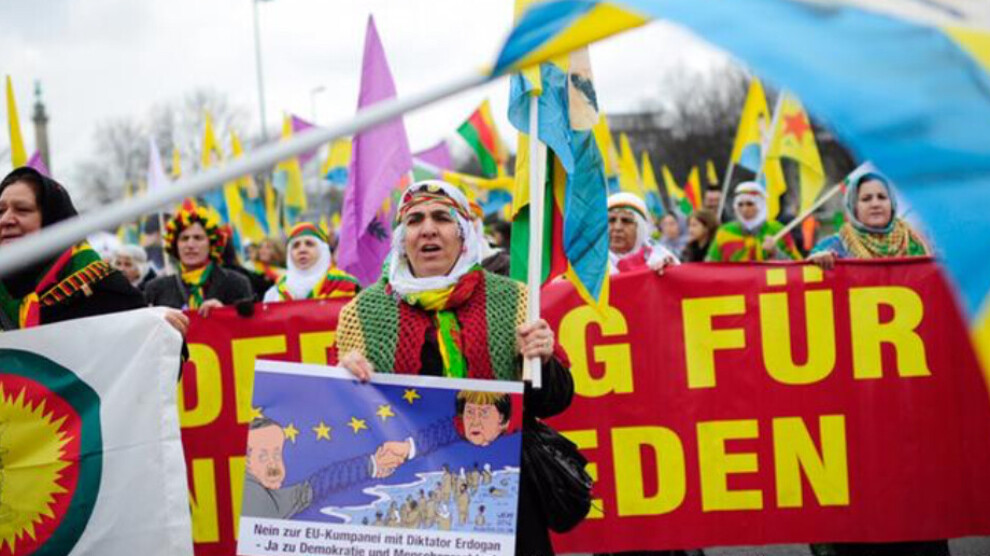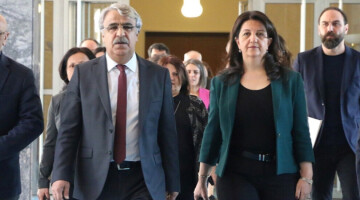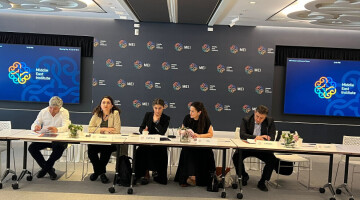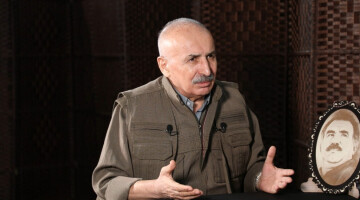In a written statement, the KON-MED co-chairs said: "We are expecting all our Kurdish people living in Germany and all the revolutionary-democratic peoples to attend the International Kurdish Culture Festival, which we will hold in Landgraaf, the Netherlands on 25 September."
The statement included the following statements: “We will hold this great rally against the fascist Turkish State's genocidal invasions, arrests and massacres in Kurdistan, the absolute isolation system it has imposed on Kurdish people's leader Abdullah Öcalan, and its attacks on Rojava, Shengal and Başur (South Kurdistan). It will be a festival for the people, especially the people who call themselves revolutionaries and democrats and support peace and democracy. We will get together and raise our voices.”
The slogan of the rally will be 'Status for Kurdistan, Freedom for Önder Öcalan'. “Our people will express their will openly with great determination,” said the statement, adding: “Participating in the International Kurdish Culture Festival, the Kurdish people, especially the revolutionary and democratic segments, will openly say, We are here".
The statement continued: “As KON-MED, we will show our attitude by participating in this great rally, reiterating that ‘We will not give up on a free and democratic life’. On this basis, we will participate in the International Kurdish Cultural Festival.”
In a special brochure prepared for the rally, the organisers underlined that “more than two million Kurds live in Europe. Most of them, in the late 1980s and early 1990s, were forced to leave their homes in Turkey, Syria, Iraq or Iran due to political persecution, displacement, and the massive expansion of the war into all parts of Kurdistan. Once they were in Europe, Kurds set about organizing and campaigning for their right to self-determination and an immediate end to European support for the war waged by Turkey.”
But in Europe, wrote the organisers, and especially in Germany, “the Kurds again faced state repression, criminalization, and persecution. Here, too, they are not legally and politically recognized as an independent people. Instead, they are registered in the statistics as Turks, Iraqis, Iranians, or Syr- ians. To this day, many European countries, especially Germany, refuse to statistically record in the census and publish the actual number of Kurdish people.
Germany is the only country in Europe that has made a political commitment to achieving the recognition of the right to self-determination and the fight for freedom a criminal offense. From a European point of view, the Kurdish question is not only a foreign policy issue but also an internal one. Instead, Europe still gives priority to its shared policy of interests with Turkey, especially as a fellow member of NATO. Based on the same principle, European countries also supply Turkey with weapons that it then proceeds to use in Kurdistan. As a result, Kurds flee and emigrate.”
The brochure added: “In 1992, against this background, Kurds in Europe organized their first international cultural festival. They intended it to express the deep longing of Kurdish society for peace, freedom and political-cultural recognition and to call for outlawing war as a means of politics. The festival succeeded in displaying the diversity of Kurdish culture and also brought other cultures closer to the Kurds.
Since then, the international Kurdish cultural festival has taken place nearly every year, and it has become an important event for Kurds in Europe. Each festival renews and reaffirms persistent efforts for a peaceful solution to the Kurdish question. As the current political situation shows, it is not easy to make peace and build democracy. It requires a great deal of strength and endurance. Resolving the Turkish-Kurdish conflict would undoubtedly contribute to lasting peace in the Middle East, but it would also have positive effects on peace worldwide, since the Kurdish question is also an international question. With this in mind, year after year, Kurds in Europe, together with friends from all parts of the world, organize the international Kurdish cultural festival, in order to continue to model peaceful coexistence, peace, freedom, mutual respect, and tolerance.”
Nevertheless, the festival has had to struggle with criminalization, prohibitions and harassment by German security authorities. The organisers said that “Germany banned it several times, and it had to be relocated to the Netherlands. But the festival guests still could not be dissuaded from sending a clear signal for solidarity, democracy and human rights, for the political and cultural recognition of the Kurdish existence, and against the criminalization of the Kurdish liberation movement.
Over the years, the festival has become a unique traditional event for the Kurdish diaspora in Europe. For almost three decades, thousands have attended it, making it one of the largest events for Kurds in Europe. Many consider it the event of the year. Participants travel from far and wide to meet relatives and friends. The guests and cultural contributions also come from all over the world to jointly set an example for peace and democracy at the festival.”














